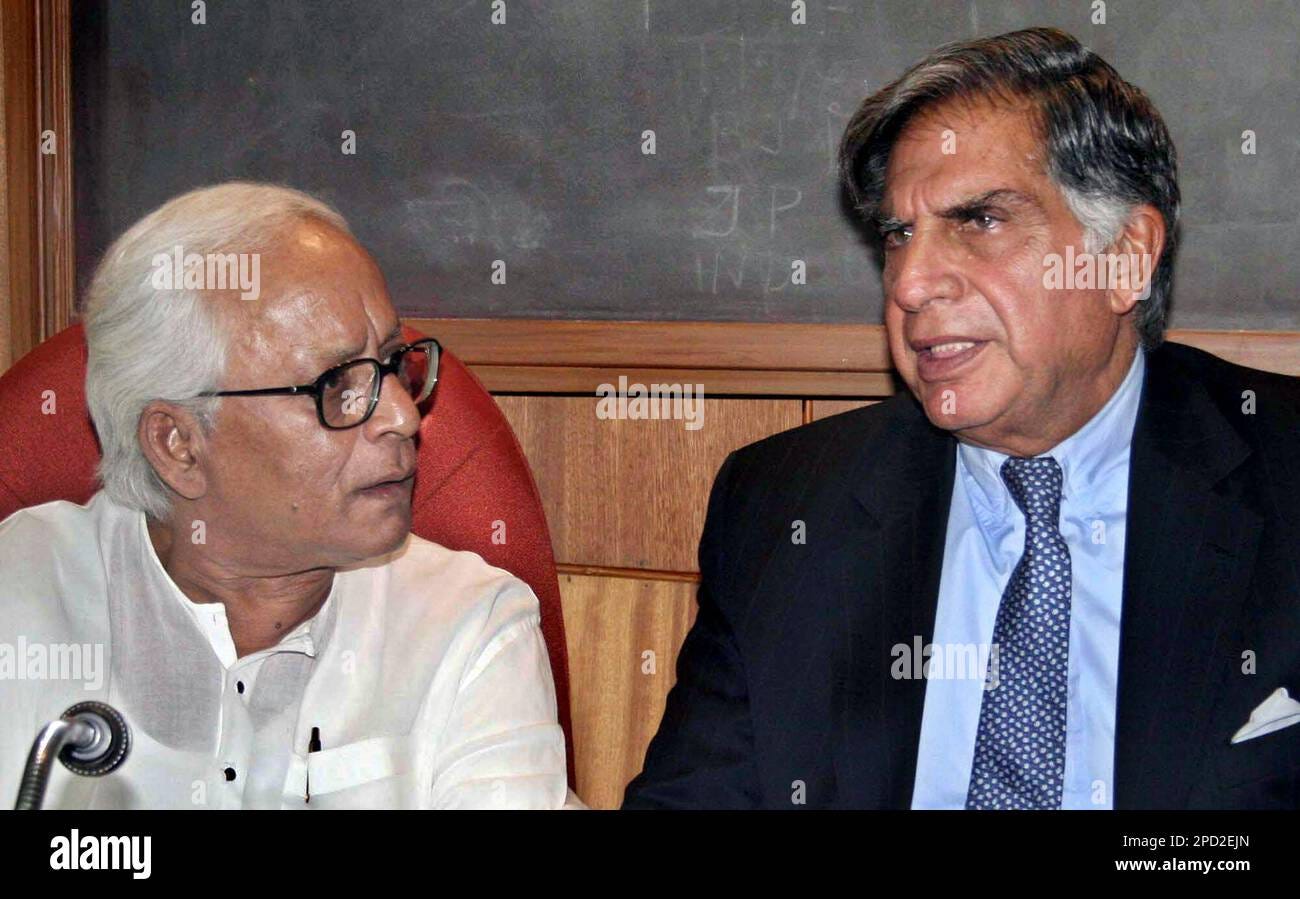Buddhadeb Bhattacharjee, the former CM of West Bengal, passed away on 8 August 2024. Ratan Tata, the former chairperson of the Tata Group and an industry titan, passed away on 9 October 2024. One of my earliest political memories involves both of them together, intertwined in an event that has since shaped my understanding of politics and progress.
It was around 2006-07; I was just 10 or 11. The Anandabazar Patrika, a staple in my household, brought the headlines of the Tata Nano project in Singur to my attention. The image that remains vivid in my mind was of Buddhadeb Bhattacharjee and Ratan Tata seated side by side at a press conference, announcing the grand vision of the Nano factory. It was then that Bhattacharjee (it feels odd to call someone that!) said something that stuck with me over the years and subtly influenced my political thinking:
There is a historical divide between capital and labour. But to progress, we need the capital. Without industrialisation, we won’t be able to move forward.
I hardly understood what is labour or capital at that point. But later in life, I started appreciating this way of thinking.
Bhattacharjee’s words resonated with the core principles of Bayesian thinking, which advocates revising one’s beliefs when presented with new evidence. In many ways, Buddhadeb Bhattacharjee was a Bayesian communist.
If you examine the rhetoric of other communist leaders from that era and compare it to Bhattacharjee’s interviews, the difference in tone, philosophy, and vision is striking. While most communist leaders clung to slogans like “Socialism or death,” Bhattacharjee was pragmatic. His contemporaries often criticized the open market but rarely offered concrete alternatives to lift millions out of poverty.
Ordinary Analysis is totally free, and I’m happy to share it with you. If you want to receive every new post in your mailbox, you can subscribe by clicking on this cool button below.
Bhattacharjee, on the other hand, studied China closely. He wrote about it in his memoirs, describing how the open market system benefited the Chinese economy, how millions were lifted from poverty, and how China became the country we know today because of that. He was a big admirer of Deng Xiaoping, the communist leader who opened the market and made the country move away from Mao’s economic teachings.
To be a Bayesian communist must have been extraordinarily challenging. As a leader shaped by a specific ideological framework, Bhattacharjee dared to revise his views in the face of new data. This kind of evolution is rare in politics, and it's even harder for a chief minister in India, where the stakes are high, and opposition comes not just from political rivals but from within one's own party.
Despite the eventual failure of the Tata Nano project in West Bengal, Bhattacharjee didn’t move away from his conviction. Once, he famously stated:
Learn truth from the facts, not from dogmas. Without industry how do you progress? This is the general trend of all civilisation — from village to city, from agriculture to industry. You cannot stop it, you should not stop it. And for that you need private industry, private capital, you need big business. We need multinationals — the only reservation is that we won't let them enter the retail sector.
For the first time in 30-odd years, the tangible results of this line of thinking began to show. Bhattacharjee’s vision wasn’t just rhetoric—it started to materialize in certain sectors during his tenure. No other leader before him, or after, managed to create such a shift. His approach marked a clear break from mere ideological posturing; he matched his words with action.
In today’s India, we sorely lack ministers and leaders who are truly Bayesian. Switching parties are common, but few leaders truly change their thinking when faced with new facts. Changing one’s belief system for the greater good should be normal, not exceptional. India needs more Bayesian thinkers—leaders who are willing to challenge dogma and adapt their views to serve the public better.
In general, India needs more reformists in public policy. To be a true reformist, one must keep an open mind and be willing to update outdated beliefs when necessary. Unfortunately, our political system is crowded with populists—more on that later!
Did you like this post? Why not share it with someone?
More reading:
[1] Buddhadeb Bhattacharjee: Chief minister who tried to break ground: https://www.business-standard.com/politics/buddhadeb-bhattacharjee-chief-minister-who-tried-to-break-ground-124081200004_1.html
[2] RIP Buddhadeb Bhattacharjee: Marxist, bhadralok and poet with big dreams for Bengal: https://www.newindianexpress.com/web-only/2024/Aug/08/rip-buddhadeb-bhattacharjee-marxist-bhadralok-and-poet-with-big-dreams-for-bengal




